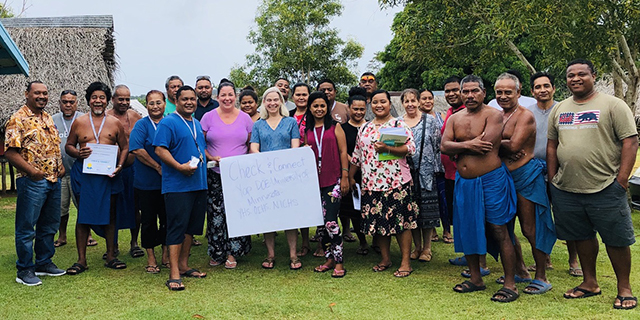
Returning home after a six-week U.S. State Department fellowship to study techniques for making education more inclusive for people with disabilities, a group of seven Ukrainian professionals built a network of more than 2,000 educators, administrators, parents and people with disabilities that is lifting the visibility of the disability community in Ukraine.
In the Federated States of Micronesia, local school officials and social workers are learning how to connect with parents of students at risk of dropping out, adapting a popular U.S. intervention program called Check & Connect to their own culture.
An entrepreneurial tailor in Kenya is adding a new $75 sewing machine that will allow him to employ another worker with disabilities to create school uniforms, demonstrating the economic ripple effect of even small dollars invested in job-skills training.
Woven deep in a global tapestry of conflict, protectionism, and uneven funding in 2020 are threads of cultural understanding—fostered by ICI staff members and their international partners—that are sustaining progress in the quest for the full inclusion of people with disabilities in their communities.
Developing relationships that can carry work far beyond the initial scope of government or private grants is one way ICI is making sustainability happen, said Renáta Tichá, director of ICI’s Global Resource Center for Inclusive Education.
“Part of our responsibility in working at ICI is to support and build capacity for inclusion and participation, not just in the United States but all over the world,” Tichá said. “If you’re not building relationships, discovering unmet needs and developing creative and culturally appropriate means to meet them, you’re not fully utilizing your skills.”



